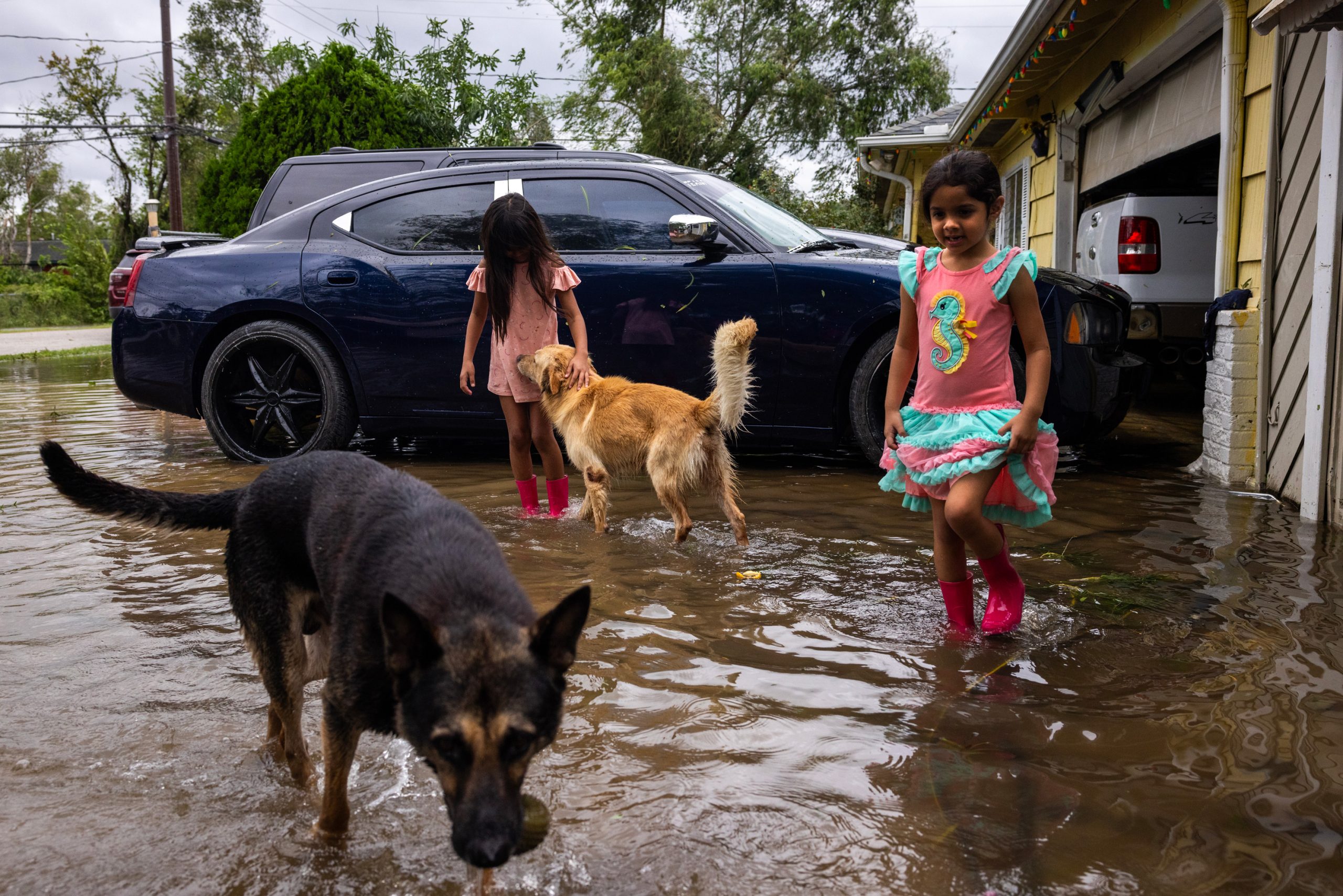|
Getting your Trinity Audio player ready...
|
Will insurance cover the tree that crashed into my house? How about the one that’s taken over my yard? Can my fence be replaced?
In the wake of Hurricane Beryl, you’ve got insurance-related questions, and we’ve got answers.
Here’s a primer on what your home insurance typically covers and what it does not, as well as best practices for filing a claim.
What home insurance covers
Home insurance protects your home; structures like garages, sheds and fences; and belongings like furniture, appliances and clothing. Insurance generally covers damage from hurricanes, including wind, lightning, and fire.
Your policy, however, may not cover all weather events. Insurance providers, faced with a rising number of claims, have limited coverage or increased deductibles for certain types of weather events. Be sure to check your policy to see what gaps, if any, are in your plan.
What home insurance does not cover
Most homeowners insurance policies do not cover water or flood damage. Flood insurance policies can be purchased from your insurance provider or directly from the National Flood Insurance Program.
If you’re thinking about getting flood insurance, know that there is typically a 30-day waiting period before a policy goes into effect.
The cost of removing fallen trees is not covered by homeowners insurance, though an exception might apply if the tree is blocking access to your home or driveway.
“Generally, your homeowners policy is only going to pay if something falls and damages your home or another structure,” said Ben Gonzalez, a spokesperson for the Texas Department of Insurance.

related to hurricane beryl
Poor drainage leaves northeast Houston residents with full ditches, flooded homes after Beryl
by Elena Bruess / Staff Writer
What to do when a tree falls on your property
Before you move the tree or make temporary repairs to prevent more damage, Gonzalez said to document the damage. Contact your insurance company as soon as possible, and save your receipts for reimbursement. Your homeowners insurance policy should cover the cost of materials and labor used to make repairs.
What if a tree fell on my vehicle?
Your auto policy will pay for damages if you have comprehensive coverage, Gonzalez said.
If a neighbor’s tree falls on your vehicle, their homeowners insurance might pay if your neighbor is somehow at fault. But if not, their policy likely won’t cover the loss because they aren’t responsible for an “act of nature,” Gonzalez said.
If you have more questions, you can call the Texas Department of Insurance helpline at 1-800-252-3439.
Does my home insurance cover hotel stays?
Again, you should check your policy to see what weather events are covered, but generally, yes. Loss-of-use coverage helps cover the cost of hotel bills, eating out and other living expenses if your home is considered uninhabitable.
What about spoiled food?
Again, it depends on your policy. If you aren’t sure, ask your agent or insurer. Be sure to document the loss if your policy covers spoiled food. Take pictures of items before throwing them out.
What about windstorm insurance?
If you live in a county that borders the coast, your homeowners policy likely excludes coverage for wind damage. Windstorm insurance can be purchased separately from your agent or the Texas Windstorm Insurance Association.
In Harris County, Morgan’s Point, La Porte, Shoreacres, Pasadena and Seabrook are considered coastal communities, according to the Texas Department of Insurance.
Am I covered if I have renters insurance?
Similar to home insurance, renters insurance covers damage to your belongings. Any damage to the structure itself is the landlord’s responsibility and does not fall under renters insurance.
Also like home insurance, renters insurance in many cases can cover your stay at a hotel or elsewhere if your unit is uninhabitable and needs repairs, according to Progressive Insurance.
“It all depends on the policy language. The contract between you and the insurance company,” Gonzalez said.

related to hurricane beryl
Where to go, who to call if you need help after Hurricane Beryl
by Elena Bruess / Staff Writer
Best practices for filing an insurance claim
If planning to file a claim, Texas Department of Insurance officials urge you to do so as soon as you’re able. Be sure to:
- Keep a list of everyone you talk to.
- Make a list of damaged property.
- Document the damage and don’t throw things away until you talk to your insurance provider or adjuster.
- Ask about additional living expenses if you can’t live in your home due to the damage or power outages.
- Save proof you paid the deductible on your claim. State law makes it illegal for contractors or roofers to offer to waive a deductible or to promise a rebate for the amount.
Report the damage you sustained to the Texas Division of Emergency Management. State officials say this helps Texas receive more recovery funds from the federal government.
Avoid contractor scams
Scammers frequently try to take advantage of people in the wake of a disaster. To protect yourself against scams, the Texas Department of Insurance offers these tips:
- Get written estimates on company letterhead with clear contact information.
- Get more than one bid to gauge which ones are too high or too good to be true.
- Check references and phone numbers. Beware of contractors who only have out-of-town references or solicit door-to-door.
- Don't pay in full upfront and don’t make a final payment until the job is done.
- Be sure to read and understand any contracts before signing, and don’t sign a contract with blanks to be filled in later.
The state’s insurance department also has resources on its website for how to get help after a disaster.


